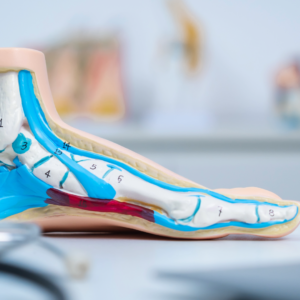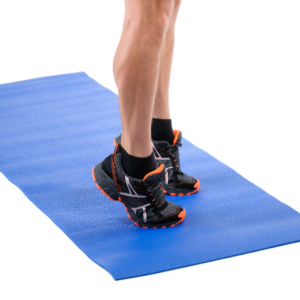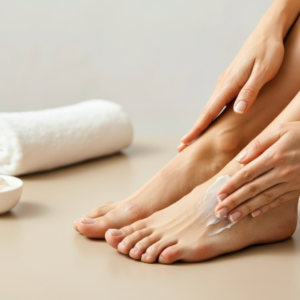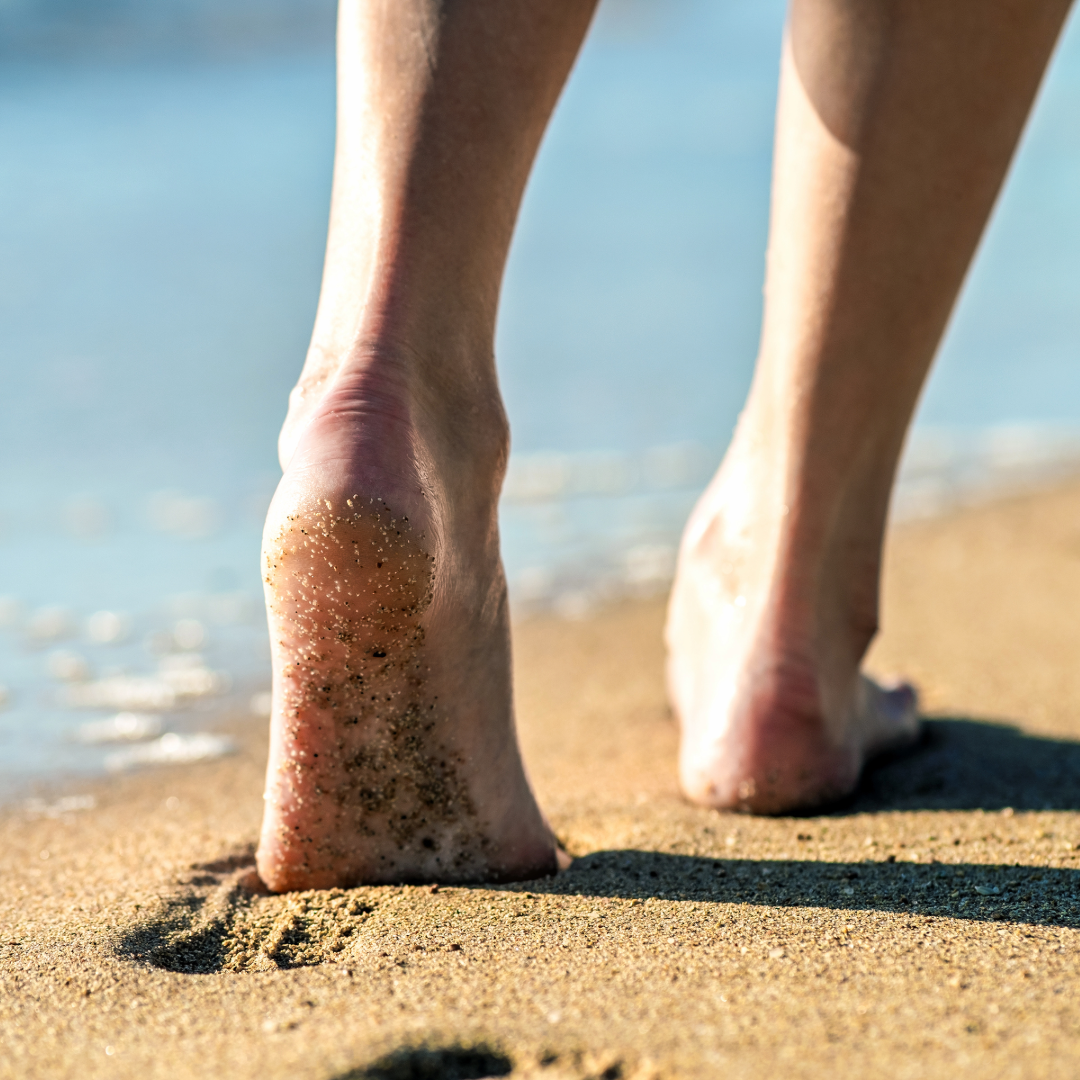Our feet serve as the foundation of our body, playing a crucial role in mechanics, posture, and movement. As we go about daily life in Melbourne’s Bayside, it’s easy to overlook the importance of these intricate structures. Let’s explore how our feet influence overall function and why proper foot care is essential for long-term health.
The Remarkable Structure of the Foot
The human foot is an engineering marvel, composed of 26 bones, 33 joints, and over 100 muscles, tendons, and ligaments. This complex design allows our feet to perform key functions:
- Weight-bearing: Supporting the entire body.
- Shock absorption: Cushioning impact during walking and running.
- Balance: Maintaining stability on various surfaces.
- Propulsion: Driving forward motion.

The Importance of Foot Strength
Recent research underscores the critical role of foot strength in balance, movement, and athletic performance. Strong feet provide a stable foundation for the body, contributing to:
- Improved Balance: Strong foot muscles enhance proprioception, helping the brain accurately interpret body position and movement. This is vital for stability, especially during dynamic activities.
- Enhanced Athletic Performance: In sports like running and sprinting, strong foot muscles efficiently transfer force to the ground, improving speed and acceleration.
- Dynamic Stability: The feet play a crucial role in rapid changes of direction. Strong foot muscles help maintain stability and control, reducing the risk of injury.

The Impact of Foot Pain on Overall Health
Foot pain is a common issue that can significantly affect quality of life. Studies show that nearly one in five people in the community experience foot pain, leading to:
- Reduced Quality of Life: Chronic foot pain negatively impacts daily function, physical activity, and general well-being.
- Decreased Physical Function: Pain can limit mobility, making everyday tasks more challenging.
- Increased Fall Risk: Changes in foot structure, muscle weakness, and altered balance can increase the likelihood of falls, especially in older adults.
- Mental Health Effects: Persistent discomfort can contribute to stress, anxiety, and reduced mental well-being.
- Secondary Injuries: Compensating for foot pain can lead to stress on the knees, hips, and lower back, increasing the risk of further injuries.
Maintaining Healthy Foot Biomechanics
Caring for your feet is an investment in overall health and mobility. Key steps include:
 Wearing supportive footwear – Ensure proper fit and arch support.
Wearing supportive footwear – Ensure proper fit and arch support.
 Staying active – Regular movement helps maintain strength and flexibility.
Staying active – Regular movement helps maintain strength and flexibility.
 Practicing good foot hygiene – Keep feet clean and dry to prevent infections.
Practicing good foot hygiene – Keep feet clean and dry to prevent infections.
 Monitoring changes – Pay attention to discomfort, swelling, or altered gait patterns.
Monitoring changes – Pay attention to discomfort, swelling, or altered gait patterns.

When to Seek Professional Help
While many foot issues can be managed with self-care, persistent pain, gait changes, or posture-related discomfortmay require professional attention.
At Physiosports, our experienced Bayside podiatrists specialise in foot and ankle assessments, biomechanical analysis, and tailored treatment plans to enhance movement and prevent injuries.
If you have concerns about your foot health or want a comprehensive assessment, book an appointment today. Your feet carry you through life—let us help keep them strong, pain-free, and performing at their best.

Book in online today by clicking here. If you have any questions, feel free to contact reception on 9596 9110.








